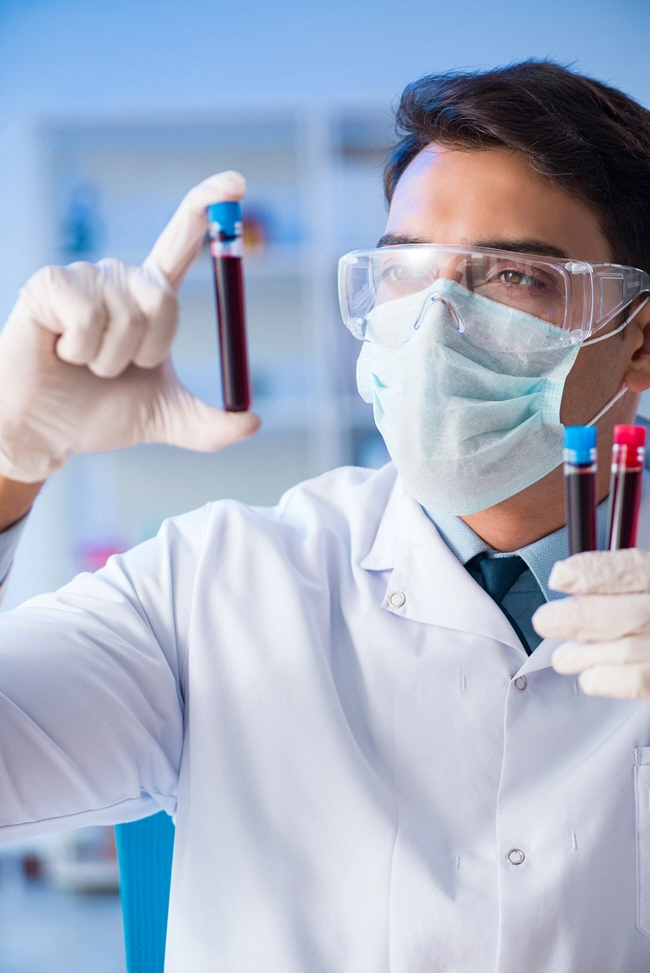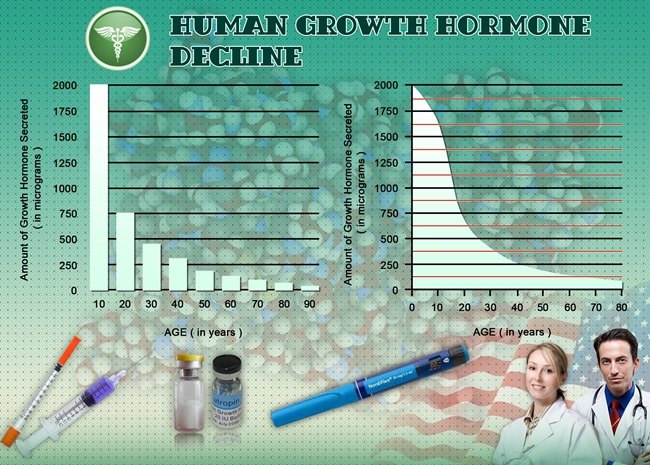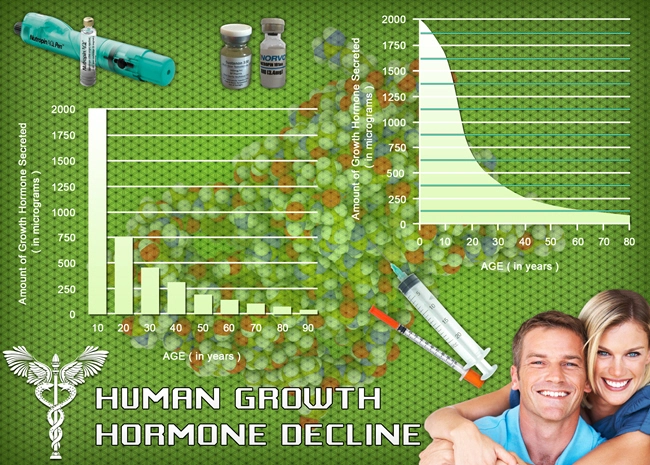
Introduction
Chronic illnesses can have a profound impact on various aspects of health, including sexual function and physical attributes. One area that has garnered significant interest and concern among American males is the potential effect of long-term health conditions on penile size. This article delves into the relationship between chronic illness and penis shrinkage, exploring the underlying mechanisms and the implications for affected individuals.
Understanding Chronic Illness and Its Effects
Chronic illnesses, such as diabetes, cardiovascular disease, and kidney disease, can lead to a myriad of complications. These conditions often involve systemic changes that can affect blood flow, nerve function, and hormonal balance. For instance, diabetes is known to cause vascular and neurological damage, which can impair erectile function and potentially lead to penile atrophy over time.
Mechanisms of Penis Shrinkage
Penis shrinkage, or penile atrophy, can occur due to several factors associated with chronic illness. One primary mechanism is reduced blood flow to the penile tissue. Conditions like atherosclerosis, which is common in cardiovascular disease, can lead to the narrowing of blood vessels, thereby decreasing the blood supply to the penis. This diminished blood flow can result in fibrosis and a subsequent reduction in penile size.
Another contributing factor is hormonal imbalances. Chronic illnesses such as kidney disease can disrupt the body's hormonal regulation, including testosterone levels. Low testosterone is linked to reduced penile size and erectile dysfunction. Additionally, nerve damage from conditions like diabetes can affect the ability to achieve and maintain an erection, further exacerbating the issue of penile atrophy.
Clinical Evidence and Studies
Several studies have investigated the link between chronic illness and penis shrinkage. A study published in the *Journal of Sexual Medicine* found that men with diabetes were more likely to experience a decrease in penile length compared to healthy controls. Similarly, research on patients with end-stage renal disease showed that penile size reduction was a common finding, attributed to the systemic effects of the disease and its treatment.
Psychological and Social Implications
The psychological impact of penis shrinkage should not be underestimated. For many American males, penile size is closely tied to self-esteem and sexual confidence. Experiencing a reduction in size due to chronic illness can lead to significant distress, anxiety, and depression. It can also affect intimate relationships, as individuals may feel embarrassed or reluctant to discuss their condition with partners.
Management and Treatment Options
Addressing penis shrinkage in the context of chronic illness involves a multifaceted approach. Managing the underlying condition is paramount. For example, controlling blood sugar levels in diabetes can help mitigate vascular damage and improve blood flow to the penis. Similarly, hormone replacement therapy may be considered for men with low testosterone levels.
In addition to medical management, psychological support is crucial. Counseling and therapy can help individuals cope with the emotional impact of penis shrinkage and improve their quality of life. In some cases, penile rehabilitation programs, which include exercises and devices to promote blood flow, may be beneficial.
Conclusion
The relationship between chronic illness and penis shrinkage is a complex and multifaceted issue that affects many American males. Understanding the underlying mechanisms, such as reduced blood flow and hormonal imbalances, is essential for effective management. While the condition can have significant psychological and social implications, a comprehensive approach that addresses both the medical and emotional aspects can help individuals lead fulfilling lives despite their health challenges. As research continues to evolve, it is hoped that new treatments and strategies will emerge to better support those affected by this condition.
Contact Us Today For A Free Consultation
Dear Patient,
Once you have completing the above contact form, for security purposes and confirmation, please confirm your information by calling us.
Please call now: 1-800-380-5339.
Welcoming You To Our Clinic, Professor Tom Henderson.

- Penile Atrophy: Symptoms, Causes, and Management Strategies for American Males [Last Updated On: February 21st, 2025] [Originally Added On: February 21st, 2025]
- Deciphering the Mystique Surrounding Male Genital Diminution: Reality vs. Folklore [Last Updated On: February 25th, 2025] [Originally Added On: February 25th, 2025]
- Grasping the Enigma of Male Genital Diminishment: Comprehending Causes and Implications [Last Updated On: February 26th, 2025] [Originally Added On: February 26th, 2025]
- Understanding the Process: The Evolution of Male Sexual Organ Size Through the Years [Last Updated On: February 27th, 2025] [Originally Added On: February 27th, 2025]
- Decoding the Enigma: A Scientific Approach to Hormonal Balance, Human Health, and the Phenomenon of Penile Shrinkage [Last Updated On: February 28th, 2025] [Originally Added On: February 28th, 2025]
- Exploring the Interplay: Body Weight, Dietary Habits and Sexual Health [Last Updated On: February 28th, 2025] [Originally Added On: February 28th, 2025]
- Unveiling Andropause: Understanding Male Menopause and Its Effects on Penile Health [Last Updated On: March 1st, 2025] [Originally Added On: March 1st, 2025]
- Demystifying the Enigma: A Candid Talk on Penile Retraction [Last Updated On: March 1st, 2025] [Originally Added On: March 1st, 2025]
- The Enigma of Anxiety: Exploring its Impact on Male Reproductive Health [Last Updated On: March 2nd, 2025] [Originally Added On: March 2nd, 2025]
- Exploring Testosterone: Its Critical Role in Muscle Mass, Fat Distribution, and Bone Health [Last Updated On: March 3rd, 2025] [Originally Added On: March 3rd, 2025]
- Understanding Physical Changes After Prostate Surgery: Insights and Coping [Last Updated On: March 4th, 2025] [Originally Added On: March 4th, 2025]
- Linking Physical Activity to Male Sexual Health and Preventing Penile Shrinkage [Last Updated On: March 5th, 2025] [Originally Added On: March 5th, 2025]
- Understanding Blood Flow's Role in Penile Health and Erection Quality [Last Updated On: March 6th, 2025] [Originally Added On: March 6th, 2025]
- Genetic Predispositions and Lifestyle Choices: Unraveling the Factors Behind Penis Size and Shrinkage [Last Updated On: March 6th, 2025] [Originally Added On: March 6th, 2025]
- Impact of Smoking and Alcohol on Male Sexual Health: Lifestyle Factors Unveiled [Last Updated On: March 7th, 2025] [Originally Added On: March 7th, 2025]
- Debunking Myths and Facts: Understanding the Causes of Penis Shrinkage in Men [Last Updated On: March 8th, 2025] [Originally Added On: March 8th, 2025]
- Understanding Chronic Illness Effects on Genital Health in American Men: Strategies for Wellness [Last Updated On: March 9th, 2025] [Originally Added On: March 9th, 2025]
- Unveiling the Link Between Diabetes and Penile Size: A Metabolic Perspective [Last Updated On: March 12th, 2025] [Originally Added On: March 12th, 2025]
- Environmental Toxins and Penis Shrinkage: Exploring the Impact on American Males [Last Updated On: March 13th, 2025] [Originally Added On: March 13th, 2025]
- Understanding Global Variations in Penile Dimensions: A Comprehensive Overview [Last Updated On: March 15th, 2025] [Originally Added On: March 15th, 2025]
- Obesity's Impact on Genital Health: Understanding Penis Shrinkage in American Males [Last Updated On: March 18th, 2025] [Originally Added On: March 18th, 2025]
- Inflammation and Oxidative Stress: Hidden Causes of Penile Shrinkage in American Males [Last Updated On: March 18th, 2025] [Originally Added On: March 18th, 2025]
- Weight Loss Reverses Penile Length Reduction in American Males: Scientific Insights [Last Updated On: March 18th, 2025] [Originally Added On: March 18th, 2025]
- High Blood Pressure's Impact on Penis Size: Understanding Shrinkage and Prevention [Last Updated On: March 18th, 2025] [Originally Added On: March 18th, 2025]
- Diet and Nutrition: Key to Preventing Penile Shrinkage and Enhancing Health [Last Updated On: March 19th, 2025] [Originally Added On: March 19th, 2025]
- Hormonal Imbalances and Penis Size: Understanding Endocrine Disruptions in American Males [Last Updated On: March 19th, 2025] [Originally Added On: March 19th, 2025]
- Sedentary Lifestyles and Male Genital Health: Understanding Penis Shrinkage [Last Updated On: March 19th, 2025] [Originally Added On: March 19th, 2025]
- Understanding Penile Aging: Normal Shrinkage vs. Medical Concerns in American Men [Last Updated On: March 19th, 2025] [Originally Added On: March 19th, 2025]
- Measuring Penis Size: Tools, Techniques, and Understanding Shrinkage in American Males [Last Updated On: March 21st, 2025] [Originally Added On: March 21st, 2025]
- Exploring Herbs and Supplements to Prevent Penis Shrinkage: A Guide for American Males [Last Updated On: March 21st, 2025] [Originally Added On: March 21st, 2025]
- Prostate Health and Penis Size: Understanding Shrinkage and Prevention Strategies [Last Updated On: March 21st, 2025] [Originally Added On: March 21st, 2025]
- Medications Linked to Penile Shrinkage: Causes and Management Strategies [Last Updated On: March 22nd, 2025] [Originally Added On: March 22nd, 2025]
- Understanding Penile Size: Measurement, Shrinkage, and Health for American Males [Last Updated On: March 22nd, 2025] [Originally Added On: March 22nd, 2025]
- Psychological Strategies to Manage Perceived Penis Shrinkage in American Males [Last Updated On: March 22nd, 2025] [Originally Added On: March 22nd, 2025]
- Metabolic Syndrome Linked to Penis Shrinkage in American Males: Prevention and Treatment [Last Updated On: March 22nd, 2025] [Originally Added On: March 22nd, 2025]
- Penile Atrophy: Causes, Detection, and Management for American Males [Last Updated On: March 23rd, 2025] [Originally Added On: March 23rd, 2025]
- Aging and Penile Health: Understanding Shrinkage and Enhancing Vitality [Last Updated On: March 23rd, 2025] [Originally Added On: March 23rd, 2025]
- Exercise Mitigates Age-Related Penile Shrinkage in American Males: Scientific Insights [Last Updated On: March 24th, 2025] [Originally Added On: March 24th, 2025]
- HRT's Role in Combating Penis Shrinkage: Benefits, Risks, and Lifestyle Impact [Last Updated On: March 24th, 2025] [Originally Added On: March 24th, 2025]
- Anti-Inflammatory Diets: A Promising Approach to Preventing Penile Shrinkage in American Males [Last Updated On: March 24th, 2025] [Originally Added On: March 24th, 2025]
- Environmental Pollution and Its Potential Impact on Male Penis Size: A Comprehensive Review [Last Updated On: March 24th, 2025] [Originally Added On: March 24th, 2025]
- Combatting Penis Shrinkage: Holistic Health Strategies for American Males [Last Updated On: March 24th, 2025] [Originally Added On: March 24th, 2025]
- Understanding and Treating Penis Shrinkage: Causes and Emerging Therapies [Last Updated On: March 24th, 2025] [Originally Added On: March 24th, 2025]
- Penis Shrinkage and ED: Causes, Overlap, and Treatment Options for American Males [Last Updated On: March 25th, 2025] [Originally Added On: March 25th, 2025]
- Chronic Stress and Cortisol: Impacts on Penile Health and Shrinkage in American Males [Last Updated On: March 25th, 2025] [Originally Added On: March 25th, 2025]
- Sleep Disorders and Penis Shrinkage: Impact on Men's Sexual Health [Last Updated On: March 25th, 2025] [Originally Added On: March 25th, 2025]
- Preventing Penis Shrinkage: Aging, Lifestyle, and Health Strategies for American Men [Last Updated On: March 25th, 2025] [Originally Added On: March 25th, 2025]
- Chronic Illnesses and Penis Shrinkage: Impacts and Management for American Males [Last Updated On: March 25th, 2025] [Originally Added On: March 25th, 2025]
- Smoking's Impact on Penis Health: Shrinkage, Cessation Strategies, and Recovery [Last Updated On: March 25th, 2025] [Originally Added On: March 25th, 2025]
- Understanding Penis Shrinkage: Causes, When to Seek Help, and Treatment Options [Last Updated On: March 26th, 2025] [Originally Added On: March 26th, 2025]
- Peyronie's Disease: Understanding Causes, Effects on Penis Size, and Treatment Options [Last Updated On: March 26th, 2025] [Originally Added On: March 26th, 2025]
- Understanding Penile Atrophy: Causes, Diagnosis, and Management Strategies for American Males [Last Updated On: March 26th, 2025] [Originally Added On: March 26th, 2025]
- Sleep Quality's Impact on Penile Health and Sexual Vitality in American Males [Last Updated On: March 26th, 2025] [Originally Added On: March 26th, 2025]
- Cardiovascular Exercise: A Key to Combating Penis Shrinkage in American Males [Last Updated On: March 26th, 2025] [Originally Added On: March 26th, 2025]
- Penis Shrinkage: Causes, Emerging Treatments, and Future Urological Advances [Last Updated On: March 26th, 2025] [Originally Added On: March 26th, 2025]
- Relationship Dynamics and Their Impact on Perceived Penis Size and Shrinkage Anxiety [Last Updated On: March 26th, 2025] [Originally Added On: March 26th, 2025]
- Understanding Penis Shrinkage: Causes, Impacts, and Overcoming Stigma [Last Updated On: March 26th, 2025] [Originally Added On: March 26th, 2025]
- Genetic Variability and Penis Size: Understanding Shrinkage in American Males [Last Updated On: March 26th, 2025] [Originally Added On: March 26th, 2025]
- Androgens' Crucial Role in Penis Health and Preventing Shrinkage [Last Updated On: March 27th, 2025] [Originally Added On: March 27th, 2025]
- Meditation and Stress-Reduction Techniques for Enhancing Penis Health and Combating Shrinkage [Last Updated On: March 27th, 2025] [Originally Added On: March 27th, 2025]
- Understanding Penis Shrinkage: Causes, Effects, and Remedies for American Males [Last Updated On: March 27th, 2025] [Originally Added On: March 27th, 2025]
- Vascular Surgery: A Key Solution for Preventing Penis Shrinkage and Enhancing Penile Health [Last Updated On: March 27th, 2025] [Originally Added On: March 27th, 2025]
- Weight Loss and Penis Size: Understanding Perceptual Changes in American Males [Last Updated On: March 27th, 2025] [Originally Added On: March 27th, 2025]
- Alcohol's Impact on Penis Size: The Importance of Moderation in Male Health [Last Updated On: March 27th, 2025] [Originally Added On: March 27th, 2025]
- Preventing Penile Shrinkage: Enhancing Vascular Health in American Males [Last Updated On: March 27th, 2025] [Originally Added On: March 27th, 2025]
- Boost Testosterone Naturally: Diet, Exercise, and Lifestyle to Prevent Penis Shrinkage [Last Updated On: March 27th, 2025] [Originally Added On: March 27th, 2025]
- Chronic Diseases and Their Impact on Penile Health and Shrinkage [Last Updated On: March 28th, 2025] [Originally Added On: March 28th, 2025]
- Inflammation's Impact on Penis Size: Cellular Mechanisms and Preventive Strategies [Last Updated On: March 28th, 2025] [Originally Added On: March 28th, 2025]
- American Men Share Personal Journeys with Penile Atrophy: Causes, Treatments, and Coping [Last Updated On: March 28th, 2025] [Originally Added On: March 28th, 2025]
- Guide to Accurate Penis Measurement and Addressing Shrinkage Concerns [Last Updated On: March 30th, 2025] [Originally Added On: March 30th, 2025]
- Understanding Penis Shrinkage: Causes, Treatments, and Breaking the Silence [Last Updated On: March 31st, 2025] [Originally Added On: March 31st, 2025]
- Understanding Penis Shrinkage: Causes, Impacts, and Holistic Management Strategies [Last Updated On: April 1st, 2025] [Originally Added On: April 1st, 2025]
- Managing Penile Shrinkage Fears: Psychological Strategies for American Men [Last Updated On: April 1st, 2025] [Originally Added On: April 1st, 2025]
- Superfoods to Combat Penis Shrinkage: Enhancing Vascular Health Through Diet [Last Updated On: April 2nd, 2025] [Originally Added On: April 2nd, 2025]
- Andropause and Penis Shrinkage: Understanding and Managing Male Aging Symptoms [Last Updated On: April 4th, 2025] [Originally Added On: April 4th, 2025]
- Endocrine System's Role in Penile Health and Preventing Shrinkage [Last Updated On: April 6th, 2025] [Originally Added On: April 6th, 2025]
- Supplements for Penis Health: Efficacy, Risks, and Holistic Approaches for American Males [Last Updated On: April 7th, 2025] [Originally Added On: April 7th, 2025]
- Male Genital Health: Understanding Penis Shrinkage and the Importance of Regular Check-Ups [Last Updated On: April 8th, 2025] [Originally Added On: April 8th, 2025]
- Chronic Stress and Penile Shrinkage: Causes, Effects, and Management Strategies [Last Updated On: April 9th, 2025] [Originally Added On: April 9th, 2025]
- Blood Pressure Medications and Penis Shrinkage: Examining the Evidence and Impacts [Last Updated On: April 10th, 2025] [Originally Added On: April 10th, 2025]








